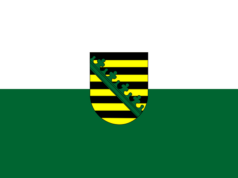
Six times No, 19 times Yes: At the meeting of the Council of the European Union in Luxembourg, the Deputy German EU Ambassador Susanne Szech-Koundouros also raises her hand for the EU Copyright Directive and paves the way for the much-criticized reform – all concerns Despite.
„The German government agrees with the proposed directive on copyright in the version of the trilogue compromise of 13 February 2019.“
Until recently, the German government has argued with itself about the directive – especially on Article 13, which now carries the number 17 according to new counting. The paragraph requires major online platforms such as Facebook or YouTube to actively prevent copyright infringement of their users.
Restrictions in the network feared
Politicians fear a restriction of diversity in the network, because the new liability rule could hit not only tech companies like Google and Facebook, but also smaller websites, educational offers or Wikipedia. The Federal Government is trying to remedy these concerns by issuing a statement of the plenary sermons by Ambassador Szech-Koundouros to the vote in Strasbourg.
„At the same time, we will make it clear that services such as Wikipedia, university repositories, blogs and forums, messenger services such as WhatsApp, sales portals or cloud services are not part of the platforms referred to in Article 17.“
Such a declaration is not legally binding, rather an explanation of one’s own voting behavior, a diplomatic „yes, but“.
Disarm the unloved part
Without German approval, the reform as a whole would have been on the loose. Also, the large, widely-advocated remainder of the Directive, such as the scientific use of copyrighted material.
The unloved part of the reform promises to defuse Germany. Automatic filtering systems that check and, if necessary, sort out content uploaded to the web should not exist. This so-called upload filter rejects the Federal Government already in its coalition agreement as disproportionate.
However, that would not do much if only Germany did that, uses Julia Reda. The pirate in the European section of the Greens fights against the upload filter. The German log note alone does not dispel their fears.
„Of course, these platforms operate across borders, and if the neighboring country says ‚Discussion forums must use upload filters, too, then that will not do much for businesses if they do not have to do that in Germany.‘
More money for authors, filmmakers and musicians
In the statement from the Ministry of Justice of Katarina Barley, Germany also promises to keep an eye on another – largely shared – core objective of the reform: namely, more money for authors of music, photos and texts online – ie for authors, filmmakers, Musician. One will examine how the fair participation of the creatives can be secured with these license revenues.
Germany now has two years to transpose the new directive into national law and to make it all right for both the inspectors of the EU Commission and their own political promises.



